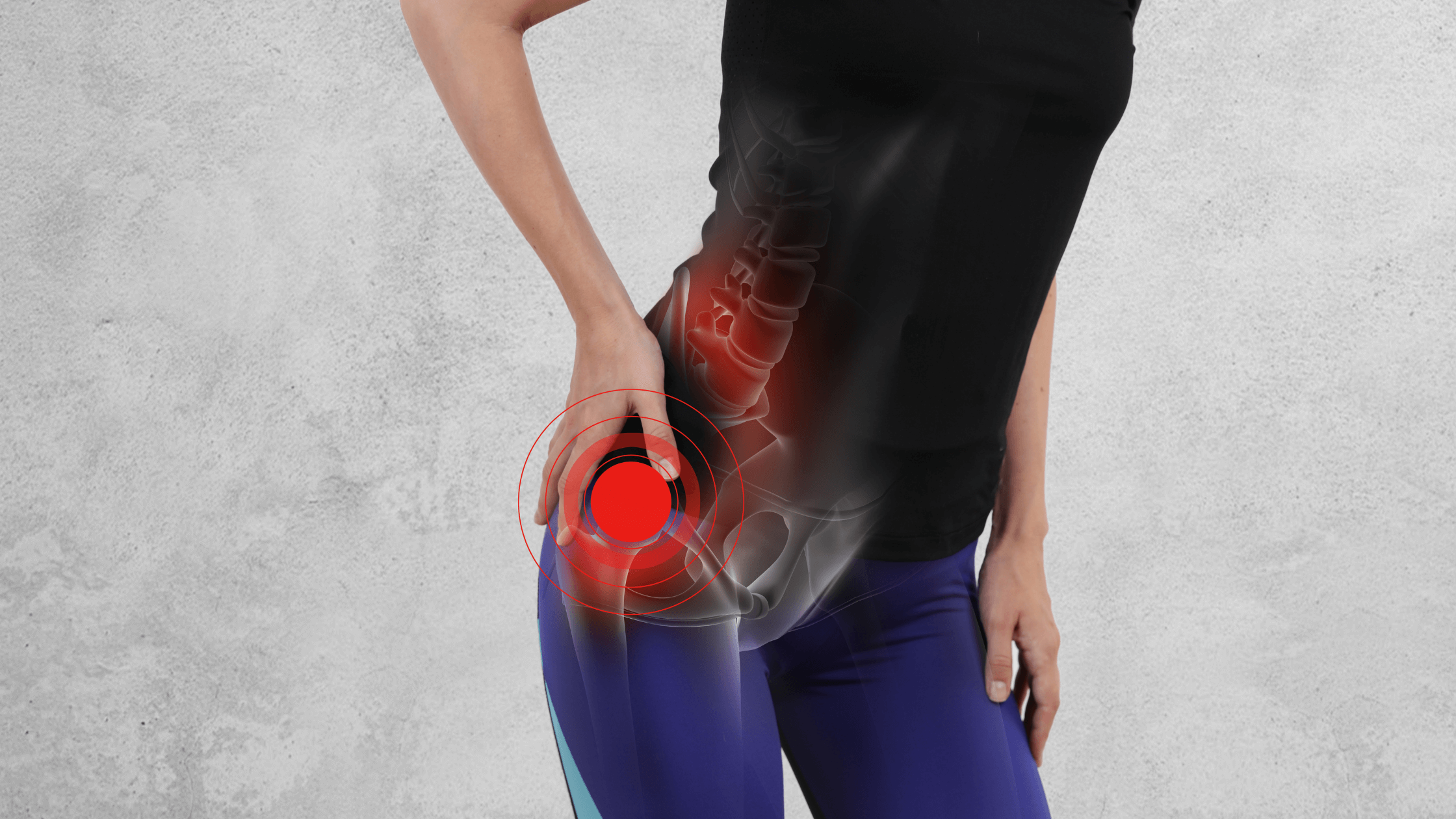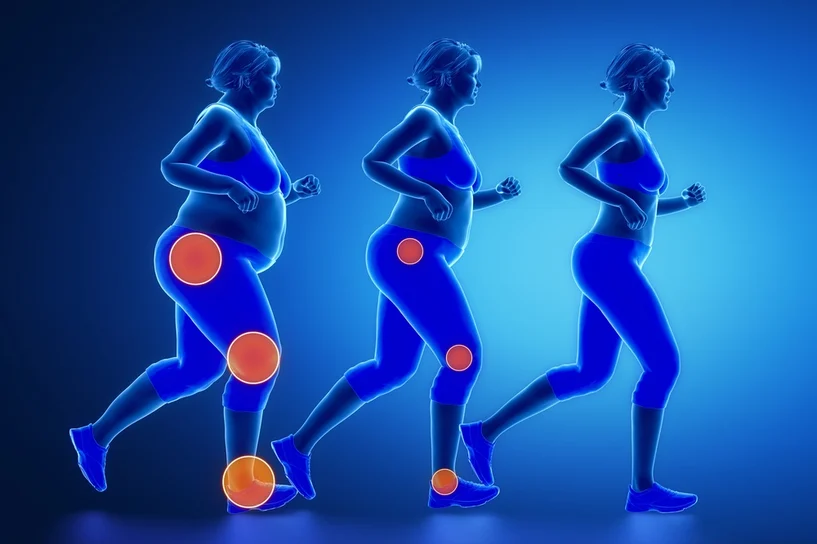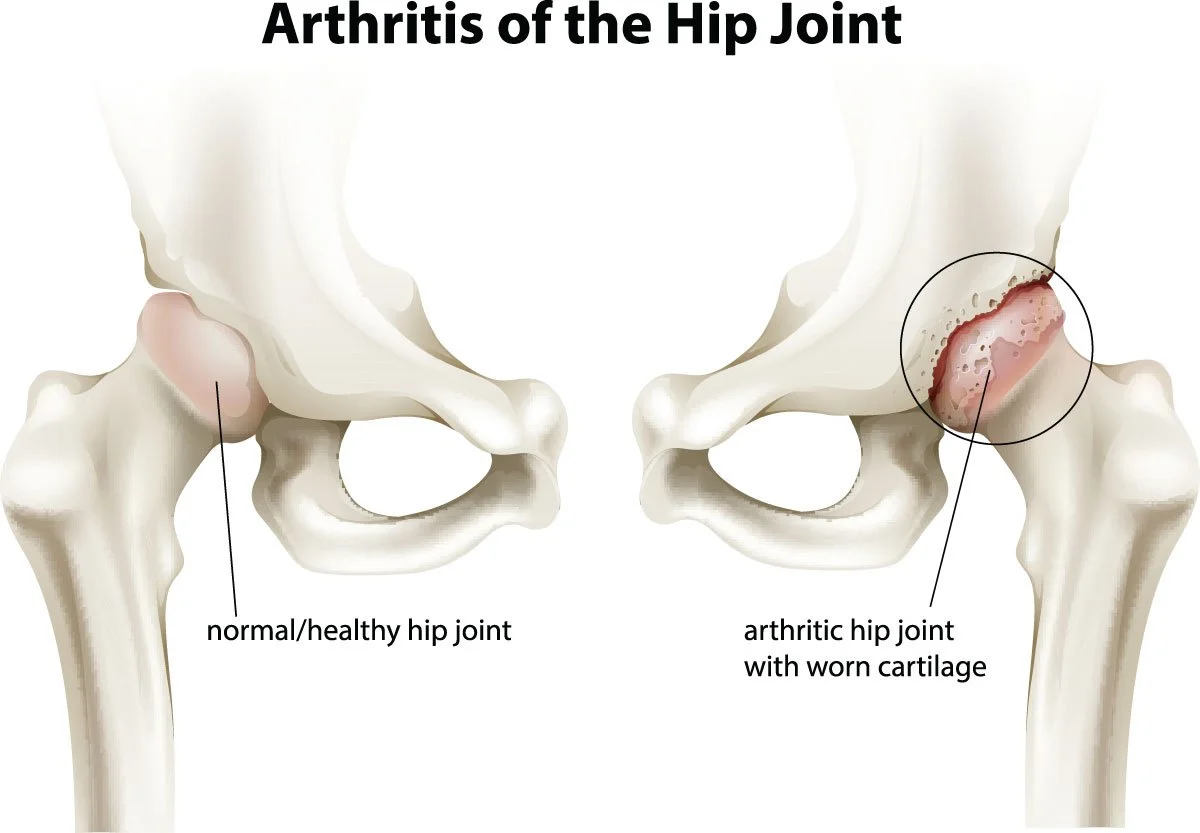3 Things That Increase Your Risk of Hip Arthritis by 7x – And What You Can Do About It
Arthritis. Just hearing the word can bring a sense of discomfort, but for many people, it’s a reality they face daily, especially when it affects the hip. If you’re experiencing stiffness, pain, or reduced mobility in your hips, you might be wondering what you can do to prevent the situation from worsening.
Here’s the thing: While age and genetics do play a part in hip arthritis, there are other risk factors that can significantly increase your chances of developing hip arthritis, and some are even more controllable than you might think. In fact, recent research shows that certain lifestyle factors can increase your risk of developing hip arthritis by up to 7 times!
But don’t panic just yet! Understanding these factors is the first step in mitigating the risks. Let’s dive into these three key risk factors that can increase your chance of hip arthritis and, more importantly, how physiotherapy in Singapore can help you manage or even prevent them.
1. Obesity
We’re all familiar with the idea that excess weight can stress your joints, but did you know that it can increase your risk of hip arthritis by 7 times? According to a recent study, being overweight or obese significantly heightens the risk of developing hip arthritis (1). And it’s not just because of the extra pressure it puts on the hip joint; it’s also about inflammation.
How does obesity increase your risk?
When you carry extra weight, your joints, including the hips, bear more load than they were designed to handle. Over time, this can wear down the cartilage in the joint and lead to osteoarthritis, which is the most common form of hip arthritis.
But it doesn’t stop there. Adipose tissue (body fat) produces inflammatory molecules known as cytokines. These compounds can trigger inflammation in the body, including in your joints. Inflammation is a key contributor to cartilage damage, further accelerating the onset of arthritis.
What can you do about it?
Good news: You don’t have to become a fitness fanatic overnight to reduce your risk. Even modest weight loss can significantly reduce the pressure on your joints and decrease inflammation in your body.
In Singapore, physiotherapists are trained to design personalized exercise programs that help manage and reduce weight safely while improving joint mobility. A tailored physiotherapy regimen that focuses on strengthening the muscles around your hips can also provide better joint support, minimizing the wear and tear caused by excess weight.
2. Previous Hip Injuries
Have you ever injured your hip, even if it was a minor accident years ago? Whether it was a fall, sports injury, or even a car accident, past trauma to the hip joint can dramatically increase your risk of developing arthritis later in life.
Why do hip injuries increase arthritis risk?
When you injure your hip, the joint’s structure can be damaged, leading to cartilage wear and tear. Inflammation from the injury can also disrupt the natural healing process, creating an environment where arthritis is more likely to develop. In some cases, hip injuries can lead to abnormal gait patterns, meaning you might walk differently, putting additional strain on the joint and surrounding muscles, which in turn increases wear on the cartilage.
What can you do about it?
If you’ve had a previous injury, physiotherapy can help you manage any lingering effects. Physiotherapists are experts at restoring normal movement patterns and strength after an injury, ensuring that you’re not putting undue stress on the joint as you move. Physiotherapy in Singapore offers tailored rehab programs that target both immediate recovery and long-term prevention of further joint damage.
Working with a physiotherapist to ensure proper biomechanics can help avoid further joint stress. For example, a hip injury could change how you walk, which may place extra strain on the hip joint and surrounding muscles. Your physio will guide you on how to return to proper movement patterns and build strength to protect the joint moving forward.
3. Genetics
While lifestyle factors like obesity and injury are within our control, genetics is another key factor that can put you at an increased risk of developing hip arthritis. If you have a family history of arthritis or hip issues, you’re more likely to experience hip arthritis yourself, as studies show that people with certain genetic markers are predisposed to joint degeneration.
How do genetics come into play?
Some individuals inherit genes that predispose them to wear down cartilage more quickly or develop joint inflammation. While you can't change your genetic makeup, being aware of your family history can help you take preventative measures early on. If arthritis runs in your family, your healthcare provider and physiotherapist can work with you to monitor the health of your joints more closely.
What can you do about it?
Even though you can't control your genetics, there’s a lot you can do to mitigate the effects of this risk factor. Early intervention is key. Regular physiotherapy can help strengthen the muscles around your hips, improve flexibility, and teach you how to manage movements that might place unnecessary strain on your hips. Additionally, physiotherapists can help design personalized stretches and exercises that promote joint health, regardless of your genetic predisposition.
How Physiotherapy in Singapore Can Help Manage and Prevent Hip Arthritis
The good news is that whether your risk factors are related to obesity, previous injury, or genetics, physiotherapy offers effective treatments that can help manage your symptoms, prevent further damage, and improve your quality of life. Here’s how physiotherapy can help:
Strengthening and Mobility Exercises: Targeted exercises designed to strengthen the muscles around your hips can reduce joint stress and help preserve cartilage. These exercises also promote better movement patterns, which can prevent additional wear on the joint.
Pain Management: Physiotherapists are highly trained in using advanced techniques to manage pain, such as dry needling and electrotherapy. These methods, along with other specialized therapies, help target the root cause of pain and promote recovery which can help you stay comfortable while focusing on your long-term joint health.
Education: A key part of physiotherapy is patient education, particularly in optimizing how you load your hips and the entire kinetic chain (your whole limb and beyond). Your physiotherapist will guide you in finding improved movement patterns and positions that reduce strain on your joints, both during activity and at rest. This education also extends to proper posture, ergonomics, and nutrition, each of which plays a crucial role in maintaining joint health and preventing further injury.
Prevention Programs: If you're at higher risk due to genetics or previous injury, physiotherapy is the ideal way to start preventive care. Tailored exercises can help maintain your range of motion, strengthen supporting muscles, and keep your hips as healthy as possible for as long as possible.
While you can’t always control the factors that contribute to hip arthritis, such as genetics or past injuries, there are plenty of proactive steps you can take to reduce your risk and manage the condition. If you're worried about the impact of obesity, past injuries, or family history, seeking professional help early can make a significant difference. Physiotherapy plays a critical role in strengthening muscles, improving mobility, and reducing inflammation, all of which help protect your hips from arthritis.
At IPhysio Clinic in Singapore, our team of expert physiotherapists is dedicated to helping you take control of your joint health. As a registered Hip Pain Expert Clinic, trained in Dr. Alison Grimaldi's specialized programs, we offer tailored physiotherapy treatments to address your unique needs. Whether you're recovering from an injury, managing your weight, or looking to prevent arthritis, we're here to guide you on your journey to pain-free hips.
Don't let hip pain affect your quality of life. Book a consultation with IPhysio Clinic today and start your path to better joint health!
Work Cited
Bliddal H, Leeds AR, Christensen R. Osteoarthritis, obesity and weight loss: evidence, hypotheses and horizons - a scoping review. Obes Rev. 2014 Jul;15(7):578-86. doi: 10.1111/obr.12173. Epub 2014 Apr 22. PMID: 24751192; PMCID: PMC4238740.




